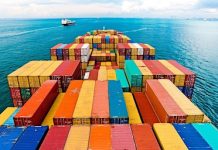Various reports show that it is not uncommon for African governments to establish trade barriers preventing neighbouring countries from accessing their markets.
Predictably, most of these barriers end up provoking the rise of informal trade, causing more than 70 percent of the trade in the continent to take the informal route.
Unfortunately, this trade model, which side-steps customs declarations, has been found to provoke import and export limitations most of which have been shown to block small traders from making desirable returns. Farmers, especially, have perennially been the main victims of cross-national trade barriers and the frustrations related to the informal channels they pursue as an alternative.
To overcome the problem, and initiate the path to transformation, AGRA President Dr. Agnes Kalibata recommends that African leaders collectively pursue a model that allows each country to gain from its evidence-based competitive advantage.
Speaking at an African Green Revolution Forum (AGRF) session around the subject of Free Trade Policy and Regulatory Reforms that Encourage Evidence Gathering and Sharing Between ActorsDr Kalibata went on to say “Most governments are focussed on establishing export and import bans when they should be looking for data to distinguish areas of surplus production from areas of deficit”.
“Our leaders need to embrace the option of trading with each other, using available evidence and data as the critical basis of planning. Real time data will help us know how much we each produce and how much we need to buy and sell.
“In this way, we will avoid the situation where we all produce the same items and then end up creating trade barriers to prevent our neighbours from selling to us,” she added.
Dr. Hanan Morsy reiterated Dr. Kalibata’s message while recommending the full enforcement of the African Continental Free Trade Area (AfCFTA) agreement.
“There is a huge potential with the AfCFTA to harmonize rules and focus on removing non-tariff barriers. With proper implementation of the Agreement, the continent’s farmers will benefit immensely as they can produce with a vast market in mind.”
Ratified by 54 of 55 African countries, the AfCFTA went into force in May this year, to create a tariff-free continent that can grow local businesses, boost intra-African trade, revv up industrialization and create jobs.
The AfCFTA is the largest free trade area in the world since the creation of the World Trade Organization in 1995. Once Eritrea, the only country not to sign, comes on board, the AfCFTA will cover more than 1.2 billion people and over $3 trillion in GDP.
If successfully managed, the AfCFTA is projected to increase intra-African trade by 52.3 percent in the next three years. At present, just 15 percent of African exports are sold to other African countries. In comparison intra-continent trade stands at 58 percent in Asia and 67 percent in Europe.
Other speakers at the session, among them Ms. Amanda Ooko-Amboka, the Engagement Manager at McKinsey & Co, promoted the implementation of the AfCFTA using digital technologies for evidence gathering and progress tracking.
“Digital tools, especially those used for data gathering and interpretation help see what is being done and help in prioritizing,” Ms. Ooko-Amboka said.
Source: African Green Revolution Forum

























